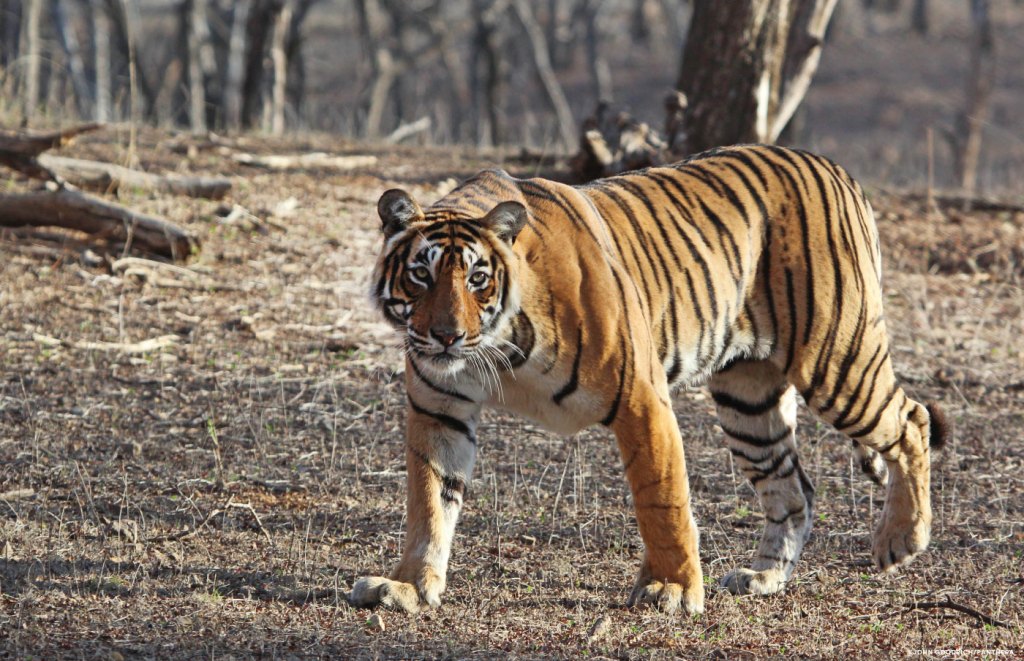Over the past few years the African poaching crisis has devolved into an overt war on the continent’s iconic wildlife. Everything from rhinos to lions to giraffes are routinely slaughtered or enslaved for sale to criminal wildlife traffickers, a continental ecological meltdown worth an estimated $23 billion annually.
But a new breed of law enforcement has recently joined the agencies scrutinizing African exports and prosecuting traffickers. Meet Africa’s newest dog brigade, part of a new program that pairs highly trained “sniffer dogs” with African law enforcement officers to intercept forbidden goods at their point of origin and before they can be shipped to their criminal buyers.
Videos by VICE
Will Powell is a young Brit who is heading up the African Wildlife Foundation’s (AWF’s) Canines for Conservation Programme, having already had broad international experience training his canine compatriots in the detection of everything from landmines to narcotics. But Powell said he’s motivated mostly by it’s wildlife crime.
“This has been running since the start of 2015 and now takes up all of our time training ivory detection dogs which are now successfully deployed with the wildlife authorities in Tanzania, Kenya and Uganda and soon to be in Botswana, Cameroon and Mozambique,” he told Motherboard.
A multinational consortium of breeds—Belgian Malinois, German shepherds, English springer spaniels and German shorthaired pointers—along with the tireless work ethic that Powell brings to training newly recruited handlers, is having a positive impact on the African poaching wars, tirelessly sniffing out one instance of wildlife crime after another.

A dog sniffs out luggage with a law enforcement official. Image: CS Owen/AWF
These new recruits have several qualities that most employers can only dream of: they never complain about working conditions or overtime, they take a perpetually enthusiastic approach to their work, and they are easily rewarded for the successful detection of trafficked goods with a fresh tennis ball.
The institutional corruption endemic in much of African governance was an immediate challenge, he said. The black market forces behind the enormous poaching market can flaunt their wealth to some of the world’s most disadvantaged in order to secure their silence regarding wildlife crime. But bribery can only go so far in corrupting people of integrity.
In one example, Powell said that the Tanzania Wildlife Authority, working jointly with Powell’s AWF Canine Detection Unit, “had been on an operation in southern Tanzania and busted the men trying to sell 67 sacks full of pangolin scale”.
But “when the team arrested the main man involved in the deal they were offered a bribe to let him go. The bribe was more than ten times their monthly salary, no one else was there, and they could have very easily taken it and no one would ever know. Instead the group of guys carried on and made the arrest. “
“In Tanzania life is hard and decisions about right and wrong are really hard,” Powell said. “My handlers, who I had the pleasure of training and mentoring, did the right thing, and they continue to do so daily, tracking down those that trade in the world’s most endangered species and making it harder and harder for them to operate. The challenges are huge but to see how the guys performed makes it all worth it.”
Another of Powell’s stories has special resonance. “There was a team of dog handlers who I trained and worked with in the Serengeti,” he says. “They were called out as an elephant carcass was found. When they arrived the handlers investigated the crime scene and could tell that the carcass was about a week old.” Powell said that using conventional methods of using tracking dogs the team would have just given up.

Powell has been training law enforcement officials to work with the dogs. Image: CS Owen/AWF
“Our team however is not conventional,” Powell said, “and started working the scene, giving the dog lots of space and allowing him to work it out.” Powell’s sniffer dog then picked up a very faint track and then proceeded to follow it all the way to the poacher’s house, about three hours away. In these rural areas, unusual events are often ascribed to the supernatural. “The poacher was so afraid of the ‘witchcraft’ that somehow lead the dog to his door that he immediately gave himself up. No witchcraft involved, just an amazing track and a great result.”
Read More: Meet Diego, the Dog That Hunts Poachers
Powell’s key to canine success, he says, is simple: “Love and respect are key to what we do,” he said, especially with highly trained dogs and motivated handlers. Another critical component is “the support of the authorities which allows our teams to do their bit to reduce the poaching and trafficking of wildlife products in East Africa.”




